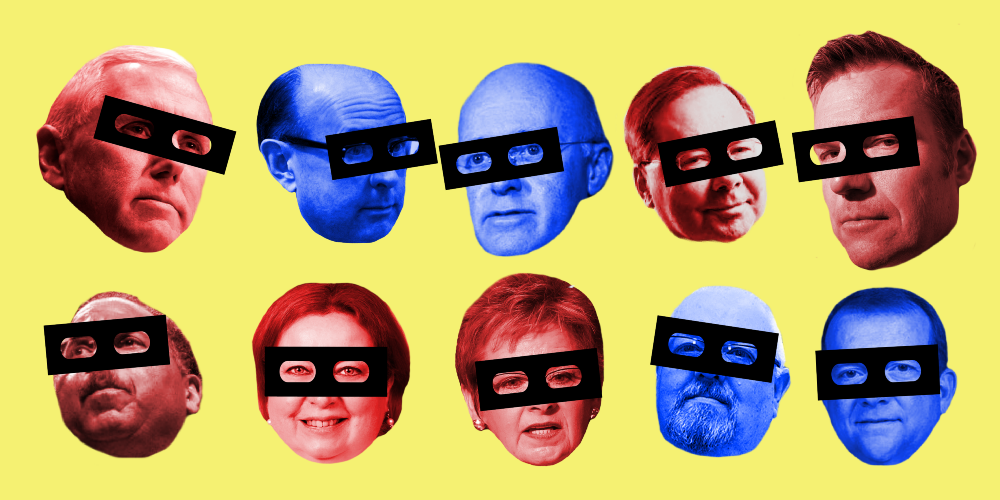On Friday night, a federal judge ordered the Republican leaders of President Trump’s White House’s Commission on Election Integrity to allow one Democratic commission member to see and copy key documents.
Matthew Dunlap, Maine’s secretary of state, alleged “that he has not received documents associated with the Defendant Presidential Advisory Commission on Election Integrity… that are necessary to inform his efforts to fully participate as a Commission member.”
As a result, U.S. District Judge Colleen Kollar-Kotelly wrote in a 24-page opinion, the “Plaintiff has a right, as a commissioner, to ‘fully participate’ in the proceedings of the Commission,” that his claim that he is unable to complete his job without the documents “has merit,” and the commission was required to give him access.
Three instances in particular stood out to the judge, including the commission’s failure to share drafts of the controversial decision asking all 50 states for voter rolls and sensitive personal information, as well as planning for past and future meetings.
Dunlap said in a statement: “This ruling is a clear vindication of what I have fought for from the start: the right to participate in the important work of this commission and hopefully achieve an outcome that benefits the American people.”
Last month, Dunlap sued the commission for violating the Federal Advisory Committee Act (FACA) and excluding him from the work he is required to do as a member of the commission. “We are not a commission of one,” he told ThinkProgress at the time. “I want us to start acting like a commission.”
In August, Dunlap told ThinkProgress’ Kira Lerner that, after the panel’s first meeting, commission chair Mike Pence and vice-chair Kris Kobach, Kansas’ Republican secretary of state, stopped communicating with him entirely.
The commission last met in September and even though Dunlap said he heard there may have been a secret meeting planned for December, the commission reportedly will not meet again in 2017.
The idea that the commission’s report about alleged voter fraud in the 2016 election will actually issue a comprehensive, transparent report early next year is becoming even more unrealistic than it was when the commission was first created.
Last November, Trump falsely claimed that he won the popular vote in the presidential election “if you deduct the millions of people who voted illegally.”
In addition to winning the Electoral College in a landslide, I won the popular vote if you deduct the millions of people who voted illegally
— Donald J. Trump (@realDonaldTrump) November 27, 2016
Trump promised to launch a commission to examine this, and a few months after he took office the Commission on Election Integrity was born. Vice President Mike Pence chaired the panel alongside Kansas Secretary of State Kris Kobach (R). Four Republicans and four Democrats joined as commissioners. One Democratic member died and has not been replaced, while another resigned before the commission even met.
As ThinkProgress’ Kira Lerner reported earlier this year:
Using the common but farcical rallying cry of “voter fraud,” the White House said it would check state voting rolls to look for inconsistencies. It wasn’t hard to read between the lines: Kobach was planning for a national voter purge, like the one he orchestrated in his own state. That effort in Kansas effectively kicked thousands of eligible voters of the rolls.
The commission has actually been hit with several lawsuits, many targeting decisions that leave its work opaque and open to charges of corruption. From the get-go, the Republicans leading the commission have been laying the groundwork for voter suppression on a national scale, largely in the dark, and without even nominal oversight from Democratic commissioners.


